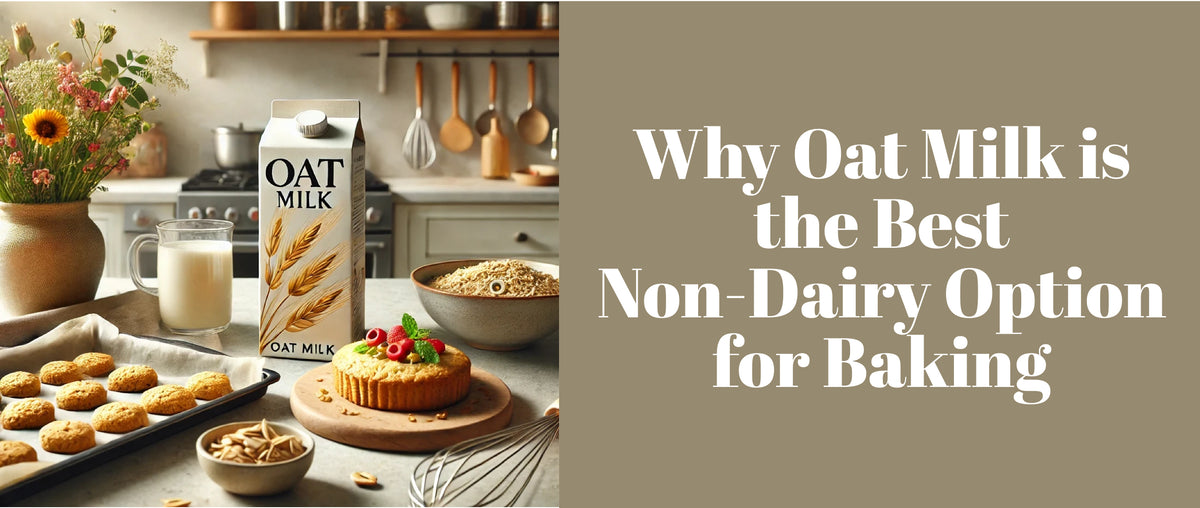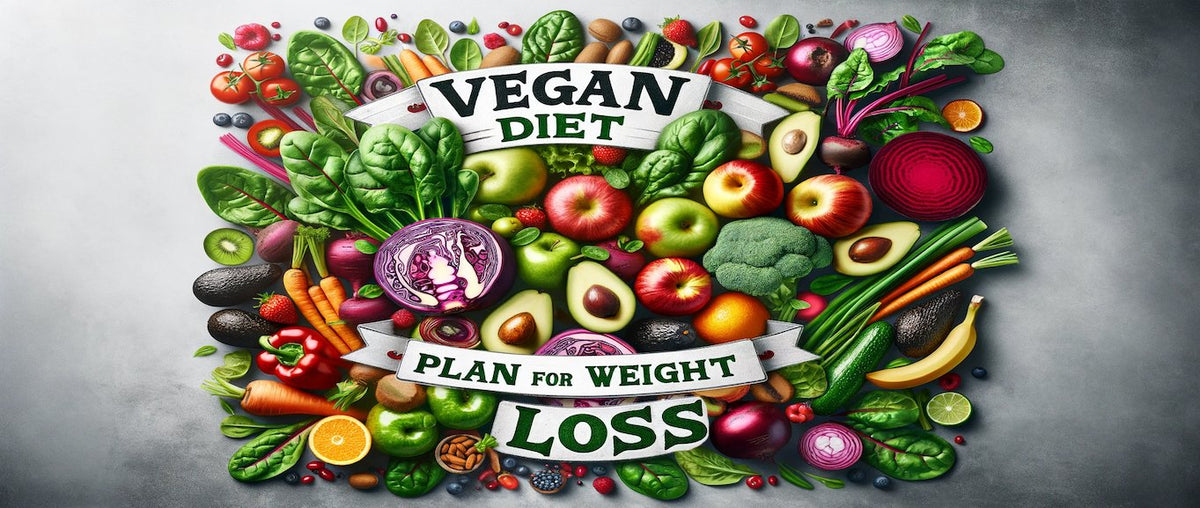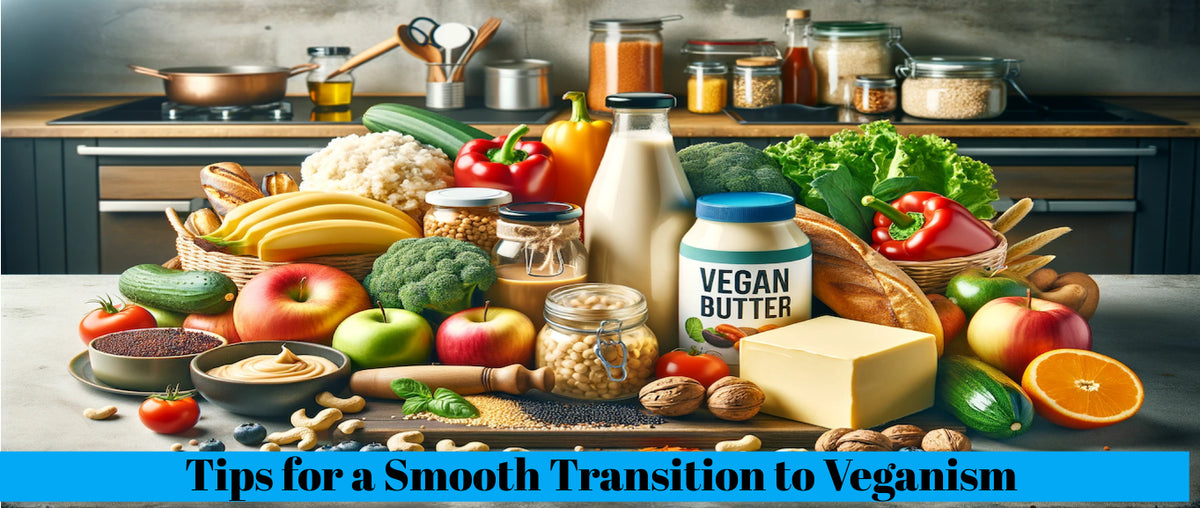Why Oat Milk is the Best Non-Dairy Option for Baking
In recent years, Oat Milk has emerged as a popular and versatile choice for those seeking a Healthy Lifestyle without dairy. With its rich, creamy texture, it’s not only a great addition to drinks and smoothies, but it’s also become a staple ingredient in baking. As more people switch to Vegan products and plant based cheese , the demand for non-dairy milk options like Oat Milk is soaring. This article explores why Oat Milk stands out as the best non-dairy milk for baking, diving into its flavor, texture, nutritional benefits, and how it compares to other options like almond, soy, and coconut milk.
Key Takeaways
- Oat Milk offers a creamy, neutral flavor ideal for baking a variety of goods.
- Its natural consistency and nutrient profile make it healthier than some other dairy alternatives.
- Oat Milk is versatile and works well in both sweet and savory recipes, making it a favorite in Healthy Living and baking communities.
The Growing Popularity of Oat Milk
Why Oat Milk is Trending in Vegan Baking
The rise of Oat Milk has been rapid, becoming a major player in the vegan and Healthy Lifestyle markets. This popularity is fueled by multiple factors:
- Environmental Benefits: Oat Milk production requires less water than almond milk and results in fewer emissions than dairy, making it a more eco-friendly choice.
- Nutritional Advantages: Naturally low in saturated fat, Oat Milk provides beta-glucans, a type of fiber that promotes heart health, and makes it appealing to people seeking healthy weight loss and liver healthy foods.
- Versatile Flavor Profile: With its smooth, creamy consistency, Oat Milk doesn’t overpower the flavors in baked goods, unlike stronger alternatives such as coconut or soy milk. Instead, it complements and enhances other flavors naturally.
These factors have helped Oat Milk secure a solid place in the market for Vegan products and non-dairy baking alternatives, giving it an edge over other non-dairy milks.

What Makes Oat Milk Ideal for Baking?
Flavor Profile: Mild, Sweet, and Creamy
When it comes to baking, Oat Milk has a unique advantage due to its mild, naturally sweet flavor. This makes it particularly compatible with a wide range of recipes—from breads and muffins to cakes and pastries. Unlike almond or soy milk, which can bring a pronounced nutty or beany taste to recipes, Oat Milk offers a neutral flavor that enhances the sweetness of desserts without being overpowering. This is especially beneficial in recipes that call for a delicate balance of flavors, like a cheesecake, vegan cheese filling, or a dessert that may also use unsalted butter or fat-free butter for a lighter texture.
Consistency and Texture: Creamy and Thick
Oat Milk’s natural consistency makes it an ideal choice for baking, as it has a thickness close to that of traditional dairy milk. This means that it can help maintain the structure and moisture of baked goods, making them tender and fluffy. Here’s why Oat Milk excels in texture compared to other non-dairy options:
- Almond Milk: Thin and watery, almond milk often doesn’t provide enough body to baked goods, making them denser or drier.
- Soy Milk: Although it has a thicker consistency, soy milk has a strong flavor that can sometimes clash with sweet recipes.
- Coconut Milk: Known for its creamy richness, but its strong coconut flavor can overpower recipes that don’t pair well with coconut.
With Oat Milk’s smooth, rich texture, it works well across baking applications. Whether you’re making cakes, cookies, or even Mozzarella Cheese sauces, Oat Milk adds a creamy consistency similar to whole dairy milk, which is essential in creating a tender crumb in cakes and pastries.
Nutritional Benefits of Using Oat Milk in Baking
One of the standout benefits of Oat Milk is its impressive nutritional profile. It’s low in saturated fat and contains no cholesterol, making it ideal for heart-conscious bakers and those following a Healthy Lifestyle. Unlike dairy milk, Oat Milk is often fortified with essential vitamins and minerals, such as calcium, vitamin D, and B vitamins, supporting overall Healthy Living.
Here’s a comparison of the nutritional content of Oat Milk with other popular non-dairy milks:
| Nutrient | Oat Milk | Almond Milk | Soy Milk | Coconut Milk |
|---|---|---|---|---|
| Calories | ~120 per cup | ~30 per cup | ~80 per cup | ~45 per cup |
| Protein | 3g | 1g | 7g | 0g |
| Fiber | 2g | 1g | 1g | 0g |
| Calcium | 20% DV | 25% DV | 25% DV | 10% DV |
| Saturated Fat | 0g | 0g | 0.5g | 3.5g |
Oat Milk’s fiber content, especially beta-glucan, is particularly beneficial as it helps with maintaining stable blood sugar levels, reducing cholesterol, and promoting heart health. These features make it an excellent choice for health-focused baking, as it adds valuable nutrients without contributing to excessive calories or saturated fat. This aligns well with other liver healthy foods and diets designed for healthy weight loss.
Health Benefits Beyond Baking
In addition to being ideal for baking, Oat Milk supports broader health goals. Its heart-healthy properties make it appealing to those pursuing a Healthy Lifestyle. For example:
- Lowers Cholesterol: The beta-glucan fibers in Oat Milk are known to reduce bad cholesterol levels, helping maintain cardiovascular health.
- Supports Digestive Health: The fiber content aids digestion, promoting a balanced gut.
- Vegan and Allergy-Friendly: For those who are lactose-intolerant, vegan, or have nut allergies, Oat Milk offers a safe and nutritious alternative.
In baking, Oat Milk can be combined with other vegan products to create wholesome, plant-based recipes, making it ideal for those transitioning to veganism or trying to incorporate more low-calorie fruits and plant based cheese into their diet.
Nutritional Benefits of Using Oat Milk in Baking
Using Oat Milk as a baking ingredient not only enhances flavor and texture but also boosts the nutritional value of recipes. Here’s a closer look at why Oat Milk is a smart choice for health-conscious bakers:
Oat Milk’s Nutritional Profile
Oat Milk is naturally low in saturated fat and contains no cholesterol, making it ideal for recipes that aim to be heart-healthy. Many brands also fortify Oat Milk with essential vitamins and minerals such as calcium, vitamin D, and B vitamins, which help support Healthy Living and bone health.
Key nutrients found in Oat Milk include:
- Beta-glucan fiber: Known to lower cholesterol, support heart health, and stabilize blood sugar levels.
- Plant-based Protein: Essential for maintaining and repairing muscles and tissues.
- Calcium and Vitamin D: Necessary for strong bones and teeth, especially beneficial for people following a dairy-free or vegan diet.
- Vitamin B12: Often added to Oat Milk, supporting energy levels, which is especially beneficial for those on a Healthy Lifestyle.
Comparison with Other Non-Dairy Milks
Here’s how Oat Milk compares nutritionally with other popular non-dairy milks in baking:
| Nutrient | Oat Milk | Almond Milk | Soy Milk | Coconut Milk |
|---|---|---|---|---|
| Calories | ~120 per cup | ~30 per cup | ~80 per cup | ~45 per cup |
| Protein | 3g | 1g | 7g | 0g |
| Fiber | 2g | 1g | 1g | 0g |
| Calcium | 20% DV | 25% DV | 25% DV | 10% DV |
| Saturated Fat | 0g | 0g | 0.5g | 3.5g |
| Cholesterol | 0mg | 0mg | 0mg | 0mg |
From a nutritional perspective, Oat Milk is particularly well-suited for baking when compared to other non-dairy options. Its balanced profile is especially beneficial for individuals focusing on healthy weight loss or seeking liver healthy foods with minimal saturated fats.
Health Benefits for Bakers and Beyond
Incorporating Oat Milk into baking recipes aligns with a Healthy Lifestyle due to its multiple health benefits, which include:
- Supporting Heart Health: Beta-glucan in Oat Milk has been shown to reduce cholesterol levels, making it a heart-friendly option.
- Assisting with Digestion: The natural fiber content in Oat Milk aids digestion and helps promote a healthy gut.
- Energy-Boosting Vitamins: Many brands add vitamin B12, which is beneficial for sustained energy throughout the day.
For those who enjoy experimenting with vegan butter, fat-free butter, and Unsalted Butter in their recipes, Oat Milk pairs beautifully with these ingredients, creating light and tender baked goods.
Oat Milk vs. Other Non-Dairy Milks: Which is Best for Baking?
Almond Milk: Nutty Flavor and Thin Consistency
Almond Milk is a popular choice for non-dairy drinkers, but it has some drawbacks for baking:
- Flavor: It has a nutty flavor that doesn’t always pair well with sweet recipes, particularly those with delicate flavors.
- Texture: Its thin consistency can lead to drier baked goods.
While Almond Milk works well in smoothies or light, airy cakes, it doesn’t offer the richness of Oat Milk and may result in a denser final product.
Soy Milk: Protein-Rich but Bold Flavor
Soy Milk is another non-dairy option with a thicker consistency, making it better suited for baking than Almond Milk.
- Flavor: Soy milk has a distinctive taste that can sometimes clash with certain dessert recipes.
- Protein Content: Soy milk is protein-rich, which can help with structure in baked goods but may impact flavor.
While Soy Milk is a good choice in some recipes, Oat Milk’s neutral taste often makes it a more versatile option in a wide range of baked goods.
Coconut Milk: Rich and Creamy but with a Distinct Flavor
Coconut Milk is prized for its creamy texture, but it has a strong coconut flavor that can dominate certain recipes.
- Flavor: Coconut milk is ideal for tropical-flavored or spiced baked goods but may overpower traditional recipes.
- Texture: It provides a rich texture but can be heavy, impacting the lightness of pastries or cakes.
Coconut milk works best in specific recipes, like those that might also call for Garlic and Herb Butter in savory applications or fat-free cheese as a topping. Oat Milk, in contrast, can be used across a wider range of sweet and savory dishes without compromising on flavor.
Why Oat Milk Stands Out
In summary, Oat Milk offers the perfect balance between creaminess and neutrality, making it a standout choice in baking. Its composition adds moisture to cakes, muffins, and even vegan cheese sauces, giving baked goods a soft, tender crumb.
| Non-Dairy Milk | Best for… | Not Ideal for… |
|---|---|---|
| Oat Milk | Cakes, muffins, pastries | Very high-protein recipes |
| Almond Milk | Smoothies, light cakes | Rich desserts |
| Soy Milk | Protein-heavy baking | Delicate-flavored recipes |
| Coconut Milk | Tropical or spiced desserts | Neutral-flavored baked goods |
Oat Milk is an excellent all-around choice for bakers looking to achieve texture and taste in Healthy Living recipes that are low in cholesterol and high in essential nutrients.

How Oat Milk Enhances the Texture and Structure in Baking
Moisture Content: Keeping Baked Goods Tender and Moist
The moisture level in Oat Milk helps to prevent baked goods from drying out, resulting in a tender, moist crumb in cakes, muffins, and breads. This quality is especially important in vegan or dairy-free baking, where it can sometimes be challenging to retain moisture without animal-based ingredients like milk, cream, or unsalted butter. The natural richness of Oat Milk helps create a balanced, well-moisturized batter, enhancing the final product’s texture.
Starch Content: Smoother Consistency for Creamier Baked Goods
The natural starches in Oat Milk contribute to its creaminess, which translates well into recipes that benefit from a smooth, cohesive batter. Unlike the thinner texture of Almond Milk, which can sometimes lead to graininess, Oat Milk binds ingredients smoothly, offering a unified consistency in both cakes and creams.
Science Behind Oat Milk in Baking
In traditional baking, proteins from milk bind with gluten, forming a structure that holds air and gives rise to the batter. Although Oat Milk doesn’t have the same animal protein, its natural starches and fiber content still contribute to a light, airy texture. This makes it possible to achieve a satisfying crumb in vegan and dairy-free recipes without compromising on texture.
Practical Tips for Using Oat Milk in Baking
For those who are new to using Oat Milk in their baking, a few simple adjustments can make a world of difference. Here’s how to make the most of Oat Milk in your recipes, ensuring successful results every time.
Substitution Ratios: Replacing Dairy Milk with Oat Milk
In most recipes, Oat Milk can replace dairy milk at a 1:1 ratio, making it one of the easiest plant-based milks to work with. Whether you’re substituting for whole milk, skim milk, or cream, Oat Milk provides a similar texture and moisture level without the dairy. Here are some substitution suggestions:
- For whole milk: Replace with an equal amount of Oat Milk for an equally creamy result in cakes and pastries.
- For heavy cream: Mix Oat Milk with a little vegan butter or Cashew butter to reach a thicker, richer consistency, suitable for use in frosting or creamy fillings.
Temperature Adjustments: Baking Times and Heat Levels
Since Oat Milk contains natural sugars, it can brown slightly faster than dairy milk. To avoid over-browning, consider lowering the baking temperature by 10–15 degrees Fahrenheit if you’re baking a delicate item, such as a cake or pastry. This small adjustment can prevent burning on the edges, giving your baked goods an even color.
Flavor Pairings: Enhancing Recipes with Oat Milk
One of the biggest advantages of Oat Milk is its versatility, pairing well with both sweet and savory flavors. Here are some ideas for recipes and flavors that complement Oat Milk beautifully:
- Cakes and Muffins: Oat Milk works well with fruits like apples, blueberries, and bananas, adding subtle sweetness and moisture. Consider incorporating low-calorie fruits for a healthful twist.
- Breads and Doughs: Use Oat Milk in bread recipes to enhance the dough’s softness and flavor. It works well in recipes that call for Unsalted Butter or garlic butter.
- Savory Bakes: For recipes like quiches or pot pies, Oat Milk pairs nicely with vegan cheese or fat-free cheese, adding depth without overpowering the recipe.
Common Mistakes to Avoid
While Oat Milk is simple to use, keeping a few tips in mind can help avoid common pitfalls:
- Watch for Curdling: If you’re baking with acidic ingredients, such as lemon juice or vinegar, avoid adding Oat Milk directly, as this may cause it to curdle. Instead, mix it with other ingredients before incorporating.
- Avoid Overmixing: Like with most baking, overmixing batter that includes Oat Milk can lead to denser baked goods. Mix until ingredients are just combined to maintain a tender texture.
- Store-Bought vs. Homemade: For consistency in baking, store-bought Oat Milk is often preferable, as homemade versions can vary in thickness.
Conclusion
As more people embrace a Healthy Lifestyle and explore vegan products in their diets, Oat Milk has proven itself to be an outstanding choice for non-dairy baking. Its creamy, neutral flavor, rich texture, and impressive nutritional profile make it ideal for a variety of recipes, from cakes and pastries to savory breads and pies. Not only does Oat Milk offer practical baking benefits, but it also aligns with Healthy Living by supporting heart health, digestion, and even healthy weight loss.
Compared to other non-dairy milks like Almond Milk, Soy Milk, and Coconut Milk, Oat Milk strikes the perfect balance, offering a mild taste that enhances rather than overwhelms baked goods. It can also be easily substituted for dairy milk in most recipes without significant adjustments, making it accessible to both novice and seasoned bakers. This versatility, combined with the health benefits of beta-glucan fiber and low saturated fat, places Oat Milk at the top for bakers seeking an alternative that supports both flavor and wellness.
For those eager to try new recipes with Oat Milk, consider pairing it with vegan cheese, unsalted butter, or even experimenting with options like fat-free cheese and low-calorie fruits for added nutrition. The possibilities are endless, and the results are consistently delicious.
So whether you’re looking to make a healthy smoothie recipe with Oat Milk, create a rich cake with plant based cheese, or whip up savory breads with garlic butter for added depth, Oat Milk is the ideal choice for both sweet and savory creations. Give it a try in your next bake and discover why Oat Milk truly is the best non-dairy option for baking, and a staple ingredient for anyone pursuing Healthy Living.
Do you enjoy vegan food? We have a list of vegan restaurants in India to help you find delicious options in your area!










